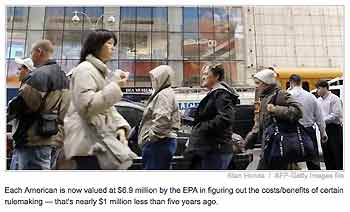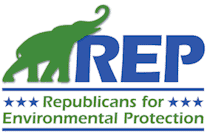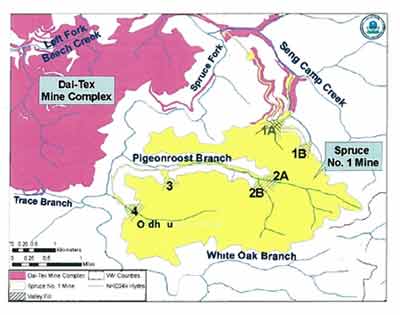Democracy Now Video. Interview with Dr. Theo Colborn. April 14, 2010.
"The Environmental Protection Agency has begun a review of how the drilling process known as hydraulic fracturing, or “fracking,” can affect drinking water quality.
We speak to Dr. Theo Colborn, the president of the Endocrine Disruption Exchange and one of the foremost experts on the health and environmental effects of the toxic chemicals used in fracking." [includes rush transcript]
Foreign Policy in Focus (FPIF) publishes commentaries, briefs, and reports on its website and organizes briefings for the public, media, lawmakers, and legislative staff.
As world leaders discuss the threat to the planet in various venues around the world, it’s the poor who face the dire consequences. Marginalized and vulnerable populations--from small farmers in Africa to fisher folk on the banks of island nations--suffer most from the refusal of developed nations and corporations to cut back on emissions that are heating up the planet. But these same populations offer important and sustainable solutions to global warming.
The problem is that the world’s leaders are not listening. And that is not likely to change at the meeting on climate change in Cancun, Mexico that will start at the end of November and run through December 10...
...All signs point to an intensification of market-based proposals for bringing the planet away from the brink of environmental disaster. Rather than addressing the current model of production, trade, and consumption that has caused the crisis, these false solutions aim to deepen it. A closer look at the so-called “Clean Development Mechanisms” (CDM) shows how.
The CDMs defined in Article 12 of the Kyoto Protocol are essentially a dodge that allows developed polluting countries to avoid immediate and significant cutbacks in emissions by “offsetting” them with projects in developing countries to conserve carbon sinks (areas that store carbon, such as forests and jungles) and other schemes. The $127 billion global carbon trading market has become a lucrative marketplace for turning planetary salvation into business deals. The upshot is that the polluter is allowed to keep on polluting. Meanwhile, areas previously cared for by local communities are pulled into management systems overseen by the polluters and international organizations that have purchased their “environmental services.”
Foreign Policy in Focus (FPIF) is a “Think Tank Without Walls” connecting the research and action of more than 600 scholars, advocates, and activists seeking to make the United States a more responsible global partner. It is a project of the Institute for Policy Studies.
YES! Magazine reframes the biggest problems of our time in terms of their solutions. Online and in print, we outline a path forward with in-depth analysis, tools for citizen engagement, and stories about real people working for a better world.
Partners:
grist.org
Corporate Accountability International
Klean Kanteen
350.org
Green for All
Barefoot College of Tilonia
Small Planet Institute
Bainbridge Graduate Institute
Common Cause
Center for a New American Dream
WASHINGTON — As the players here remake the nation’s vast regulatory system, they have been grappling with a subject that is more the province of poets and philosophers than bureaucrats: what is the value of a human life?
The answer determines how much spending the government should require to prevent a single death.
To protests from business and praise from unions, environmentalists and consumer groups, one agency after another has ratcheted up the price of life, justifying tougher — and more costly — standards...
...The Environmental Protection Agency set the value of a life at $9.1 million last year in proposing tighter restrictions on air pollution. The agency used numbers as low as $6.8 million during the George W. Bush administration.
The Food and Drug Administration declared that life was worth $7.9 million last year, up from $5 million in 2008, in proposing warning labels on cigarette packages featuring images of cancer victims.
The Transportation Department has used values of around $6 million to justify recent decisions to impose regulations that the Bush administration had rejected as too expensive, like requiring stronger roofs on cars.
See: Climate Co-benefits and Child Mortality Wedges | Fracking Resource Guide.
What is the value of a human life? Climate change is going to kill millions of children, does it matter that they're not yours?
See also: Associated Press. "How to value life? EPA devalues its estimate: $900,000 taken off in what critics say is way to weaken pollution rules." 2008-07-10.
American Electric Power v. Connecticut, argued earlier this week, spurs debate over the role of the courts in addressing climate change.
The Court heard oral argument in American Electric Power v. Connecticut on Tuesday. The case raises questions about the role of the federal courts in addressing climate change–a subject that has interested academics as well. Professors David Markell and J.B. Ruhl address the issue empirically by reviewing every climate change case brought through December 31, 2009, to determine whether courts are serving as “battlefields” in the “climate fights.”
A forthcoming article in the Yale Law Journal by Benjamin Ewing and Douglas Kysar argues that climate change litigation illustrates how tort law can prod political actors to address social problems. And John Wood’s article in the Environmental Law Reporter runs through the arguments regarding displacement of public nuisance claims in the context of climate change. All three articles contend that climate change litigation raises important questions about the relationship between the judiciary and the political branches of government. We’ll soon learn the Court’s views on these questions as well.
See: SCOTUSblog | American Electric Power Co., Inc. v. Connecticut.
See: Markell, D., and J. B. Ruhl. “An Empirical Survey of Climate Change Litigation in the United States.” Envtl. L. Rep. News & Analysis 40 (2010): 10–644. Print.
See: Ewing, B., and D. A Kysar. “Climate Change, Courts, and the Common Law.” Print.
See: Wood, John. "Easier Said than Done: Displacing Public Nuisance when States Sue for Climate Change". (February 17, 2011). Environmental Law Reporter, Forthcoming. Available at SSRN: http://ssrn.com/abstract=1763359
Is America witnessing the birth of a new civil war? A polarization of political ideologies has paralyzed the democratic process and poisoned the relationship needed between politics, science, and hermeneutics.
This conservative organization's action page has form letters on a number of issues that Republican voters may send to their representatives to let them know that the party line may not be in their best interests.
Whether or not the debate is about jobs, public radio, oil and gas, or America's military footprint in the world; all Americans will benefit by the preservation of our resources. Conservative Republicans, Liberal Democrats, and everyone in between and on the fringes can work together to provide the regulatory leadership that demonstrates our respect for all life and a basic human right to clean water and air.
The "Big Lie" perpetrated by climate change doubters and insincerely debated by Global Warming Experts, warrants the recall of those representatives whose bullying is tantamount to treason and rends our union vulnerable to the extremist, irresponsible policy that cites Climate Change as a lie, endangering the health and safety of our children, and putting us at the brink of disaster. (Neil Zusman, 2011-03-17).
The Senate letter, "Congress Should Pass a 'Clean' Continuing Resolution" includes:
As a Republican voter, I urge you to support a fair 2011 continuing resolution that does not target environmental and conservation programs for a disproportionate share of budget cuts and is free of the anti-environmental riders that were, unfortunately, included in a resolution that the House passed on February 19.
I understand the need to correct the federal government’s fiscal imbalances, and it is fair to require reductions in environmental and conservation programs. It is not fair, however, to require these programs to shoulder a disproportionate share of the reductions. Nor should the resolution include the shockingly extreme riders that were in the House’s resolution. These riders would weaken bedrock environmental laws, including the Clean Air Act and Clean Water Act, as well as public lands protection and wildlife conservation.
Republicans were not elected to weaken laws that protect Americans’ health and protect our nation’s scenic, historic, and wildlife treasures for future generations.
Congressional Republicans must return to the traditional conservatism that values stewardship, saving for the future, and making frugal and careful use of our country’s natural as well as its fiscal resources.
Please support a continuing resolution that takes a rational approach towards correcting our nation’s fiscal imbalances, and avoids indulging the anti-environmental agendas of political extremists.
See: Smackdown: climate science vs. climate economics.
See: Climate Co-benefits and Child Mortality Wedges.
See: Snubbing Skeptics Threatens to Intensify Climate War, Study Says.
See: Climate Zombies Now Run The House.
See: GOP Budget Amendments Would Destroy Health, Economy, Planet
See: EPA chief faces hostile House GOP
See: Energy & Commerce Committee Investigates Potential Impacts of Hydraulic Fracturing
Expert reports and selections of news accounts and analysis of the breaking news concerning the meltdown of Japan's nuclear reactors ongoing since March 13, 2011.
To respond to questions we’ve been getting, we’re developing a set of responses to “frequently asked questions.” The FAQ is located here: "Nuclear Reactor Crisis in Japan FAQs", and we will continue adding to it through the week.
Follow Google News on 'meltdown'.
Contact All Things Nuclear.
A project of the Union of Concerned Scientists.
A federal proposal laying out new standards for a controversial natural-gas drilling practice called hydraulic fracturing likely won’t be issued until after the 2012 elections, an energy analyst said Thursday.
The practice is certain to be an election issue for lawmakers from states in which hydraulic fracturing is prevalent, but the timing of the standards would take that hot-button issue off the table.
Comment:
"This new process is a Godsend…BY Grandma" on 02/11/2011 at 20:52
The federal government must step in and start regulating fracking. Hydraulic fracturing should NOT be exempt from the Safe Water Drinking Act and Clean Water Act. This industry is killing people by contaminating aquifers across the nation. Fracking is shaping up to be the cause of the biggest environmental and public health disaster this country has ever witnessed. 2012 is too long to wait to start correcting this horrific wrong that has been committed against the people of the United States.
See: Toledo. Free Press. "Kasich says Marcellus Shale could be ‘godsend’ for Ohio." Toledo. Free Press. 2011-01-01.
See: U.S. Congress. Committee on Space, Science, and Technology. "Hearing Highlights Lack of Objectivity in Draft EPA Fracking Study--No Evidence of Drinking Water Contamination from Fracking, Witnesses Say". May 11, 2011
Let's consider for a moment the targets the federal government chooses to make an example of.
So far, no bankers have been charged, despite the unmitigated greed that nearly brought the world economy down. No coal or oil execs have been charged, despite fouling the entire atmosphere and putting civilization as we know it at risk.
But engage in creative protest that mildly disrupts the efficient sell-off of our landscape to oil and gas barons? As Tim DeChristopher found out on Thursday, that'll get you not just a week in court, but potentially a long stretch in the pen...
Bill McKibben
Bill McKibben is the author of a dozen books on the environment, a scholar in residence at Middlebury College, and founder of 350.org. He also serves on Grist’s board of directors.
See: Tim DeChristopher | Bidder70.
See: Gas Drillers Plead Guilty to Felony Dumping Violations
See: Student Disrupts Government Auction of 150,000 Acres Of Wilderness For Oil & Gas Drilling.
See: The Need for Mass Mobilizations
See also: Video - 350.org: Because the world needs to know.
See: Amy Goodman and Juan Gonzalez. "Environmentalist Tim DeChristopher Found Guilty of Sabotaging Oil and Gas Auction; Faces up to 10 Years in Jail." Democracy Now!. March 4, 2011.
...The U.S. Environmental Protection Agency has vetoed the largest single mountaintop removal permit in West Virginia history.
The move is part of an Obama administration crackdown aimed at reducing the effects of mountaintop removal coal-mining on the environment and on coalfield communities in Appalachian — impacts that scientists are increasingly finding to be pervasive and irreversible.
The final EPA decision document is available here. EPA has also now posted some appendices to that document, including a response to comments.
EPA officials this morning were alerting West Virginia’s congressional delegation to their action, and undoubtedly preparing for a huge backlash from the mining industry and its friends among coalfield political leaders.
Comment (65 comments posted as of 1/14/11 1:04 P.M.) posted by rhmooney3. Jan. 13, 2011 at 1:33 P.M.
...I believe the mining industry, the entire business community and all the states want this to move through the federal courts to the U.S. Supreme Court...
P.S. As a result of this EPA action, mining companies have no choice than to play ball with the EPA — in making this decison the EPA has made a lot of other decisions yet to come.
W.Va. Senator Joe Manchin said:
Today’s EPA decision is not just fundamentally wrong, it is an unprecedented act by the federal government that will cost our state and our nation even more jobs during the worst recession in this country’s history.
While the EPA decision hurts West Virginia today, it has negative ramifications for every state in our nation, and I strongly urge every Senator and every Member of Congress to voice their opposition.

Peter S. Silva, EPA’s Assistant Administrator for Water
EPA Press Release:
CONTACT:
Jalil Isa (News Media Only)
isa.jalil@epa.gov
202-564-3226
202-564-4355
FOR IMMEDIATE RELEASE
January 13, 2011
EPA Halts Disposal of Mining Waste to Appalachian Waters at Proposed Spruce Mine: Agency cites irreversible damage to clean water, environment in the region.
WASHINGTON – After extensive scientific study, a major public hearing in West Virginia and review of more than 50,000 public comments, the U.S. Environmental Protection Agency (EPA) today announced that it will use its authority under the Clean Water Act to halt the proposed disposal of mining waste in streams at the Mingo-Logan Coal Company’s Spruce No. 1 coal mine.
Background on Clean Water Act Section 404(c)
Clean Water Act Section 404(c) authorizes EPA to restrict or prohibit placing dredged or fill material in streams, lakes, rivers, wetlands and other waters if the agency determines that the activities would result in “unacceptable adverse effects” to the environment, water quality, or water supplies. This authority applies to proposed projects as well as projects previously permitted under the Clean Water Act although EPA is not considering such action for other previously permitted projects.
With today’s (Jan. 13, 2011) action, EPA has exercised its Section 404(c) authority only 13 times in its history of the CWA. EPA recognizes the importance of ensuring that its Section 404(c) actions are taken only where environmental impacts are truly unacceptable and will use this authority only where warranted by science and the law.
Ken Ward Jr. says:
Arch Coal hasn’t responded to my query yet, but the New York Times has these comments from a company spokeswoman:
John Broder. Jan. 13, 2011. NYT. "Agency Revokes Permit for Major Coal Mining Project".
“We remain shocked and dismayed at E.P.A.’s continued onslaught with respect to this validly issued permit,” said Kim Link, the company’s spokeswoman. “Absent court intervention, E.P.A.’s final determination to veto the Spruce permit blocks an additional $250 million investment and 250 well-paying American jobs.”
“Furthermore, we believe this decision will have a chilling effect on future U.S. investment,” she added, “because every business possessing or requiring a permit under Section 404 of the Clean Water Act will fear similar overreaching by the E.P.A. It’s a risk many businesses cannot afford to take.”
Ken Ward, Jr. is a staff reporter for the Charleston Gazette, who has been nationally recognized for his writing on the coal mining industry. He is Chair of the Society of Environmental Journalists First Amendment Task Force, founded in 2002 to "to address freedom-of-information, right-to-know, and other news gathering issues of concern to the pursuit of environmental journalism."
See: WATER: Rulings Restrict Clean Water Act, Foiling E.P.A. | Mixplex
See: Lisa P. Jackson, EPA (lisapjackson) on Twitter | Mixplex
See: New WVU-Va Tech study links water quality and cancer deaths in West Virginia coalfields
See: Ecological integrity of streams related to human cancer mortality rates




















